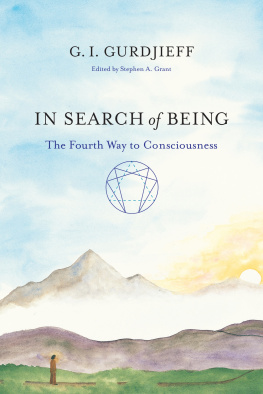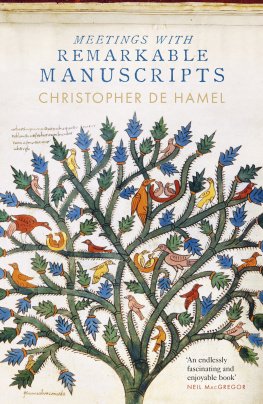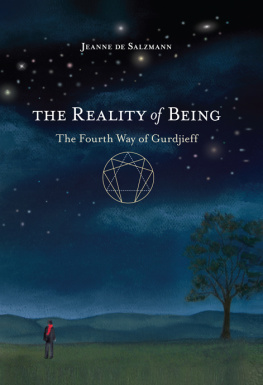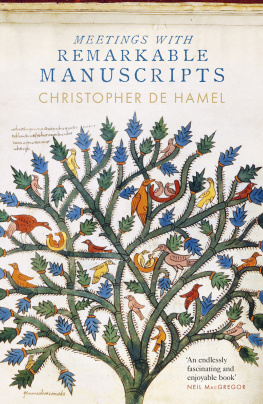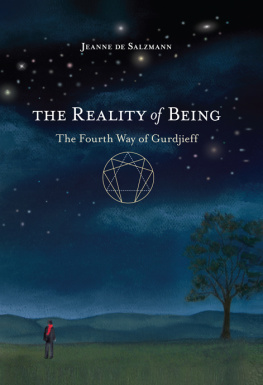Table of Contents
WRITTEN IN RUSSIAN, THE MANUSCRIPT OF THIS BOOK WAS BEGUN IN I917 AND REVISED BY THE AUTHOR OVER A PERIOD OF MANY YEARS. THE FIRST ENGLISH TRANSLATION BY A. R. ORAGE HAS BEEN REVISED AND REWORKED FROM THE RUSSIAN FOR THIS PUBLICATION
FOREWORD
GURDJIEFF HAD DEVOTED most of his life to teaching a system of knowledge to his pupils when, shortly before his death, he decided to publish the first of the three books in which he had expressed his ideas, All and Everything, or Beelzebubs Tales to his Grandson. In his own words, the aim of Beelzebubs Tales was to destroy mercilessly the beliefs and views rooted for centuries in the mind and feelings of man by arousing in the mind of the reader a stream of unfamiliar thoughts.
Ten years after his death, his pupils decided to make known the whole body of his ideas, until then accessible only to themselves.
A second volume, which represents what Gurdjieff called the second series of his writings, was first published in France in 196o, and it is this book which is now published in English under the title Meetings with Remarkable Men. As Gurdjieff said, his task in this series was to furnish the material required to create the feeling of a new worlda feeling which throws a different light on ones own life.
At the same time this book is written in the form of autobiography and contains the only available information about his early life and the sources of his knowledge.
Gurdjieff begins by describing the circumstances of his childhood, particularly the influence of his father, one of the last survivors of an ancient culture handed down by oral tradition. Coming as a boy under the tutelage of the dean of the Cathedral of Kars, he was given both a religious training and a modern scientific education by men who understood how to cultivate in him a taste for essential values.
As he grew up, his urge to understand the meaning of human life became so strong that he attracted a group of remarkable men -among whom were engineers, doctors, archaeologists and so on. In search of a knowledge which they were certain had existed in the past but of which almost all traces seemed to have disappeared, he set out with them to explore many countries in the Middle East and Central Asia.
With his companions, after many great and unexpected difficulties, he succeeded in finding a very few individuals and isolated communities, each time acquiring fragments of this knowledgeuntil the moment when the doors of a certain school opened for him, where he came to understand how to bring together all the principles of an esoteric teaching. This school he calls simply the Universal Brotherhood, without telling more.
From then on he proceeded to live these principles, putting them to the test by the strictest inner disciplines till the end of his life.
Gurdjieff spoke also of a third series of his writings called Life Is Real Only When I Am. His aim in this series was to assist the arising in a mans thought and feeling of a true representation of the real world, instead of the illusory world he now perceives.
The third book, now being prepared for publication, will consist chiefly of talks and lectures which Gurdjieff gave to his pupils. Here he shows the way towards direct work on oneself, points out the pitfalls, and provides means for a better understanding of the inner conditions which are indispensable in the self-development of man.
TRANSLATORS NOTE
THE WORK OF GURDJIEFF has many aspects. But through whatever form he expresses himself, his voice is heard as a call.
He calls because he suffers from the inner chaos in which we live.
He calls to us to open our eyes.
He asks us why we are here, what we wish for, what forces we obey. He asks us, above all, if we understand what we are.
He wants us to bring everything back into question.
And because he insists and his insistence compels us to answer, a relationship is created between him and ourselves which is an integral part of his work.
For nearly forty years this call rang with such force that people came to him from all over the world.
But to meet him was always a test. In his presence every attitude seemed artificial. Whether too deferential, or on the contrary pretentious, from the first moment it was shattered; and nothing remained but a human creature stripped of his mask and revealed for an instant as he truly was.
This was a merciless experienceand for some impossible to bear.
These people could not forgive him for having seen through them and as soon as they were out of his sight, went to great lengths to justify themselves. This was the origin of the most fantastic legends.
Gurdjieff himself was amused by these stories. He even went so far as to provoke them, at times, if only to be rid of curiosity-seekers, incapable of understanding the meaning of his search.
As for those who knew how to approach him and for whom this meeting was a turning-point in their lives, any attempt to describe their experience seemed ridiculous. This explains why direct accounts are so rare.
The influence he exertedand still exertscannot, however, be separated from Gurdjieff the man. So it is legitimate to want to know about his life, at least in its main outlines.
For this reason his pupils have felt it right to publish this book, originally intended to be read aloud to a limited circle of pupils and guests. Here Gurdjieff speaks of the least-known period of his life: his childhood, his youth and the first stages of his search.
But if Gurdjieff speaks of himself, he does so to serve his lifelong purpose. It is apparent that this is not an autobiography in the strict sense of the word. For him the past is not worth recounting except in so far as it can serve as an example. In these tales of adventure what he suggests are not models for outward imitation, but a completely new way of facing life, which touches us directly and gives us a foretaste of another order of reality.
For Gurdjieff was not, and could not be, only a writer. His task was a different one.
Gurdjieff was a master.
This idea of master, so familiar in the East, is hardly accepted at all in the West. It calls to mind nothing definite; its content is extremely vague, even suspect.
According to traditional conceptions, the function of a master is not limited to the teaching of doctrines, but implies an actual incarnation of knowledge, thanks to which he can awaken other men, and help them in their search simply by his presence.
He is there to create conditions for an experience through which knowledge can be lived as fully as possible.
This is the real key to the life of Gurdjieff.
From the time of his return to the West, he worked unceasingly to gather round him a group of people ready to share with him a life wholly turned towards the development of consciousness. He unfolded his ideas to them, sustained and gave life to their search, and brought them to the conviction that, to be complete, their experience must include at one and the same time all the aspects of a human being. And this is the very idea of the harmonious development of man on which he based that Institute which for many years he strove to set on its feet.
Working towards this goal, Gurdjieff had to fight a relentless battle through all the difficulties caused not only by war, revolution, and exile, but also by the indifference of some and the hostility of others.


